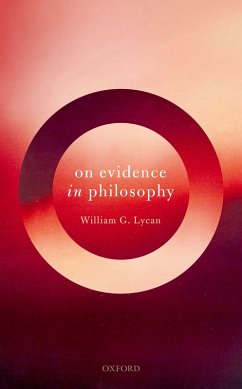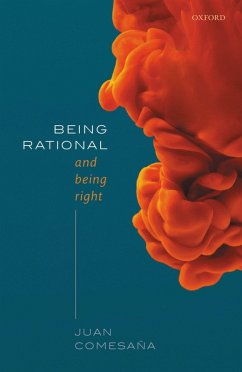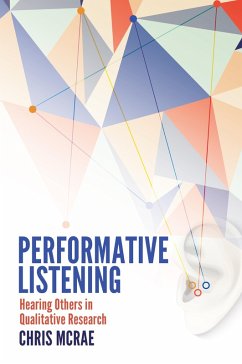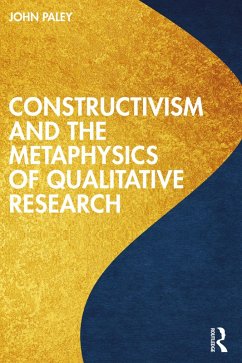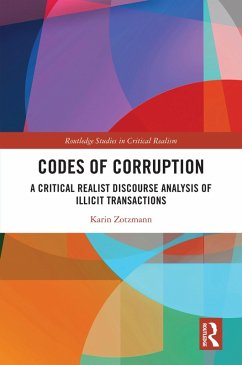
On Evidence in Philosophy (eBook, PDF)

PAYBACK Punkte
12 °P sammeln!
In this book William G. Lycan offers an epistemology of philosophy itself, a partial method for philosophical inquiry. The epistemology features three ultimate sources of justified philosophical belief. First, common sense, in a carefully restricted sense of the term-the sorts of contingent propositions Moore defended against idealists and skeptics. Second, the deliverances of well confirmed science. Third and more fundamentally, intuitions about cases in a carefully specified sense of that term. The first half of On Evidence in Philosophy expounds a version of Moore's method and applies it to...
In this book William G. Lycan offers an epistemology of philosophy itself, a partial method for philosophical inquiry. The epistemology features three ultimate sources of justified philosophical belief. First, common sense, in a carefully restricted sense of the term-the sorts of contingent propositions Moore defended against idealists and skeptics. Second, the deliverances of well confirmed science. Third and more fundamentally, intuitions about cases in a carefully specified sense of that term. The first half of On Evidence in Philosophy expounds a version of Moore's method and applies it to each of several issues. This version is shown to resist all the standard objections to Moore; most of them do not even apply. It is argued, in Chapters 5 and 6, that philosophical method is far less powerful than most have taken it to be. In particular, deductive argument can accomplish very little, and hardly ever is an opposing position refuted except by common sense or by science. The final two chapters defend the evidential status of intuitions and the Goodmanian method of reflective equilibrium; it is argued that philosophy always and everywhere depends on them. The method is then set within a more general explanatory-coherentist epistemology, which is shown to resist standard forms of skepticism. In sum, William G. Lycan advocates a picture of philosophy as a very wide explanatory reflective equilibrium incorporating common sense, science, and our firmest intuitions on any topic-and nothing more, not ever.
Dieser Download kann aus rechtlichen Gründen nur mit Rechnungsadresse in A, B, BG, CY, CZ, D, DK, EW, E, FIN, F, GR, HR, H, IRL, I, LT, L, LR, M, NL, PL, P, R, S, SLO, SK ausgeliefert werden.




